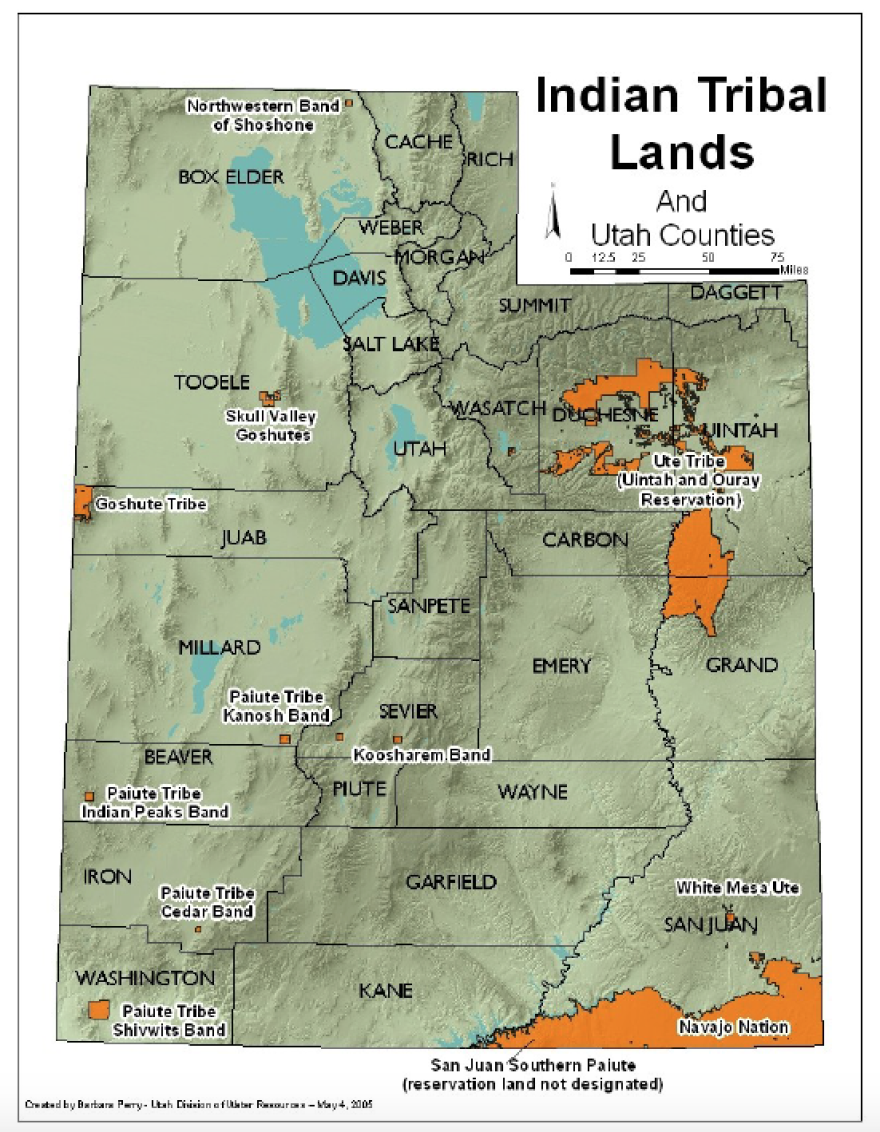Tribal leaders in Utah are impressed with President-elect Joe Biden’s plan to assist Indian Country and say it will help build trust between tribes and the federal government.
The 15-page plan addresses everything from tribal sovereignty to ensuring healthcare and voting rights for Native Americans. And it stands in stark contrast to President Donald Trump’s Administration’s three page plan for Indian Country, which was also released in October —two weeks after Biden’s.
Navajo Nation President Jonathan Nez said Biden’s campaign consulted a number of tribal
leaders to come up with the plan. Nez was involved in a work group and was invited to announce it alongside Biden and Vice President-elect Kamala Harris in Phoenix.
“Both candidates did say to us that when they win, Navajo will have a seat at the table,” Nez said. “We appreciate that acknowledgment and we appreciate the updates during the transition meetings that are occurring.”
It appears other tribal leaders will have a seat at the table in the Biden Administration as well. The first section of the plan is titled “Strengthen the Nation-to-Nation Relationship” and promises to restore the annual White House Tribal Nations Conference then-President Barack Obama started in 2008. Trump has not held the conference since taking office.

Tamra Borchardt-Slayton, who chairs the Paiute Indian Tribe, expressed appreciation for the high level of detail in the plan, which she said shows an understanding of the issues facing Indian Country.
“It helps strengthen our relationship, and it also helps define those federal Indian policies that affect us,” Borchardt-Slayton said.“It specifically targets things in our Native American communities that we desperately need, like housing infrastructure.”
The plan promises to make historic investments in tribal infrastructure, from housing to transportation to clean drinking water. It also says the federal government will invest $20 million in rural broadband and work with the Federal Communications Commission to reform its Lifeline program, which provides internet subsidies to low-income households.
Borchardt-Slayton said she was glad the plan includes a promise to appoint Native Americans to high level government positions. She said she would love to see Biden nominate U.S. Rep. Deb Haaland, D-NM, as Interior secretary, a cabinet-level position that oversees the Bureau of Land Management and the Bureau of Indian Affairs.
Northwestern Band of Shoshone Councilman Darren Parry echoed that statement. He said he’d like to see Biden nominate Native Americans to head the Bureau of Indian Affairs and Indian Health Service, as well.
“If a Native American isn’t in those positions, then who’s advocating for Native Americans?” Parry said. “It’s like a lobbyist, you want someone who believes in your cause and understands it.”
Rupert Steele, chairman of the Confederated Tribes of Goshute, said he was happy to see a section on economic development in the plan. It says Biden will make sure investments in clean energy projects reach tribal lands.
Steele said his tribe has a number of shovel-ready projects, including solar, biomass, and wind energy plants, but they’ve struggled to build them.
“We need some kind of funding mechanism so we could plan 15 to 45 year projects,” he said. “It’s [really] hard to do now without the funding.”
All of the leaders emphasized the importance of increasing funding for the Indian Health Service, which Biden said he will do — but that will depend on Congressional budgeting. He also touts his commitment to expand and defend Medicaid and the Affordable Care Act, which includes a number of programs and exemptions that benefit Native Americans.
“All of our healthcare is severely underfunded,” said Steele. “The first thing Congress cuts is Indian programs that are funded by the federal government.”
The plan acknowledges that other programs that serve Indian Country have also been underfunded for years, and it says Biden will work to address that issue by launching a task force to look into chronic funding shortfalls and deliver recommendations to meet the federal government’s treaty obligations to tribes.
“That’s all we want,” said Parry. “We just want what was promised. And I think the Biden team, on paper, is absolutely ready to step up and help us with those needs.”
The plan says Biden will work with Congress to reauthorize the Native American Housing Assistance and Self Determination Act, which helps streamline the construction of affordable housing by Tribes. Representative Deb Haaland, D-NM, introduced legislation in 2019 to reauthorize the program, which expired in 2013.




